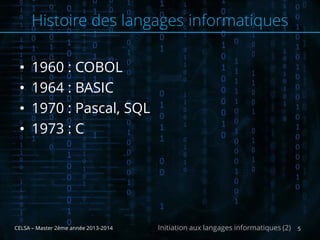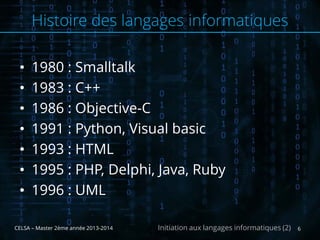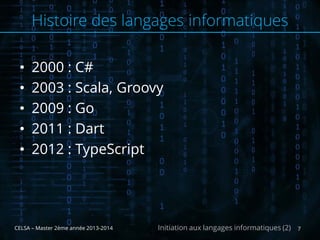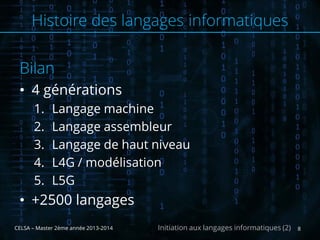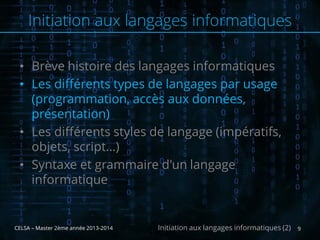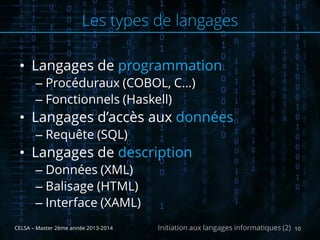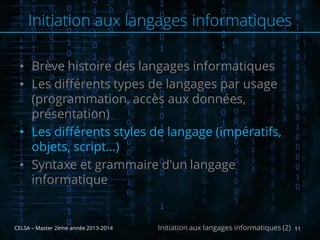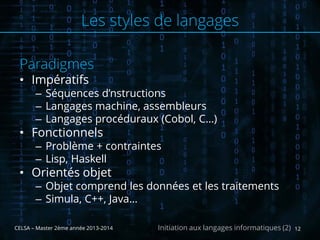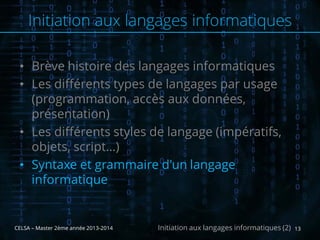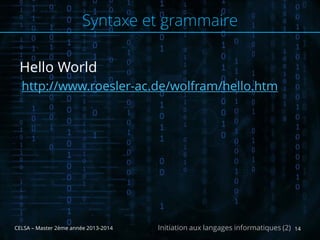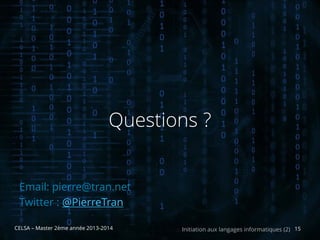Le document présente une initiation aux langages de programmation, abordant leur histoire, les différents types de langages par usage, ainsi que les styles et la syntaxe des langages informatiques. Il retrace l'évolution des langages depuis le premier langage binaire jusqu'aux langages modernes tels que Python et Java. Enfin, il mentionne les paradigmes de programmation, notamment impératif, fonctionnel et orienté objet.
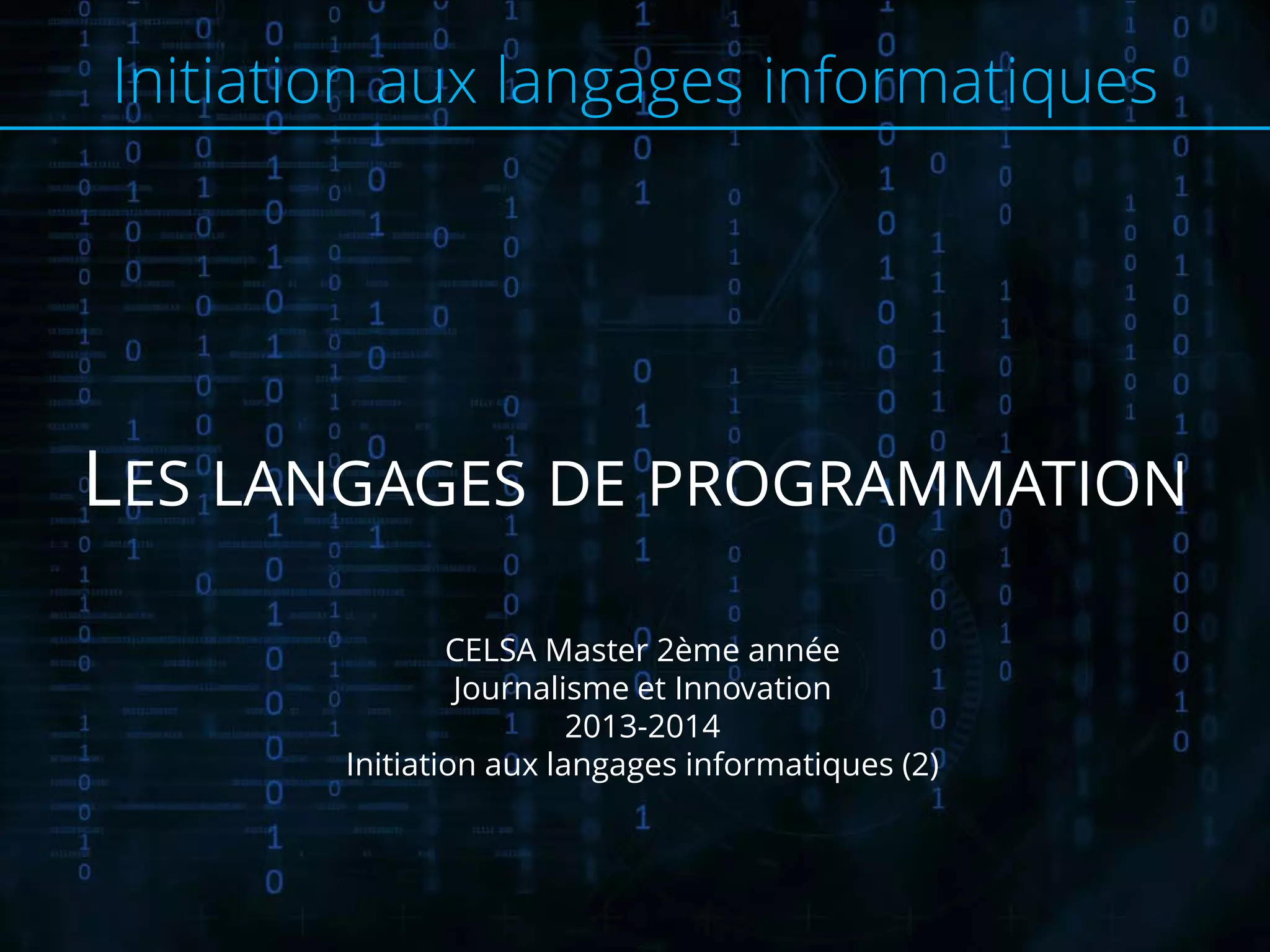
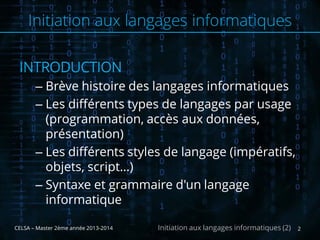
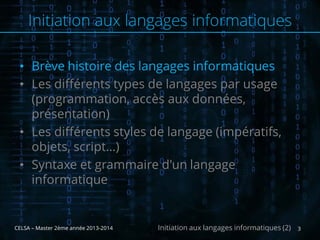
![La préhistoire
• 1801 : Joseph Marie Jacquard, 1er
langage binaire [1G]
• 1842 : Ada Lovelace écrit le 1er
programme (sans ordinateur)
• 1950 : langage assembleur [2G]
• 1954 : Fortran [3G]
CELSA – Master 2ème année 2013-2014 4Initiation aux langages informatiques (2)
Histoire des langages informatiques](https://image.slidesharecdn.com/initiationauxlangagesinformatiques-2-leslangages-131001074017-phpapp02/85/Les-langages-de-programmation-4-320.jpg)
